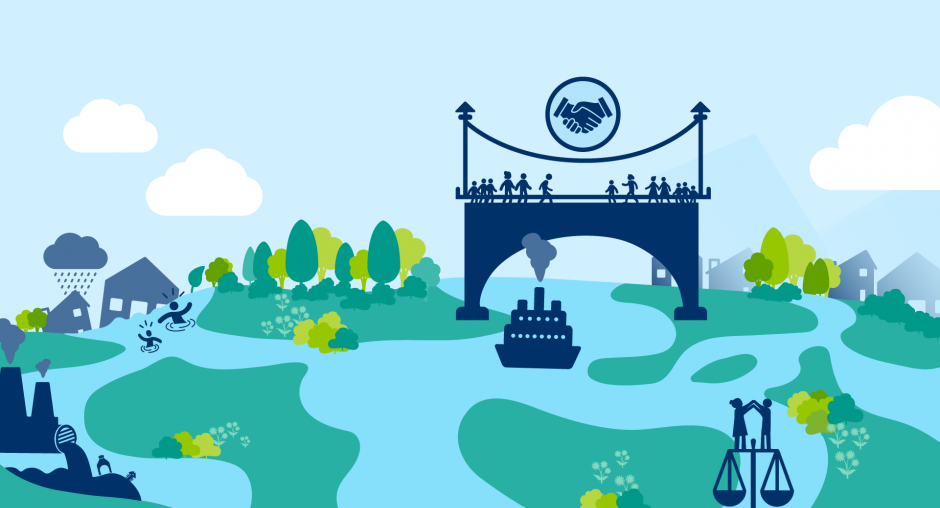Water Management
Mandate
The OSCE’s mandate in the area of water management dates back to the Helsinki Final Act and comprises a number of OSCE Ministerial Council Decisions, such as the 2002 Porto 10th OSCE Ministerial Council,, the 2003 Maastricht Strategy Document for the OSCE Economic and Environmental Dimension, the 2007 Madrid Declaration on Environment and Security, to name a few.
A more comprehensive list of OSCE’s mandate in the area of water management includes:
- 1975 Helsinki Final Act
- 1989 Sofia Meeting on the Protection of the Environment organized by the Conference on Security and Co-operation in Europe (CSCE)
- 2003 Maastricht Strategy Document
- 2007 Madrid Declaration on Environment and Security
- 2014 MC Decision on Enhancing Disaster Risk Reduction
The role of the OSCE
The OSCE has a long track record of working on various aspects of water management, such as water diplomacy, transboundary water co-operation and good water governance.
Water diplomacy can lead to improved relations among countries and communities, enhance security and prosperity and protect the environment. Supporting co-operation in transboundary basins provides opportunities for strengthening bilateral and regional co-operation to promote stability, security, sustainable development and peace. Good water governance can support political, social, economic and administrative systems that are in place and to manage water resources more sustainably.
There are more than 150 river and lake basins shared by two or more states in the OSCE region. Given its mandate in the area of water management and its significant experience in promoting transboundary water co-operation, the OSCE is well positioned to foster water diplomacy. OSCE projects and activities have contributed to more effective governance of water resources, also articulating and materializing benefits of transboundary water co-operation for strengthening trust and good neighbourly relations. These projects are supported by the Office of the Co-ordinator of OSCE Economic and Environmental Activities (OCEEA) in close collaboration with OSCE Field Operations and the United Nations Economic Commission for Europe (UNECE) as well as other international partners, including the United Nations Development Programme (UNDP).
The OSCE supports water management in many ways:
- long-term and comprehensive process to strengthen transboundary co-operation and sustainable development in the Dniester river basin between Moldova and Ukraine;
- support with drafting and negotiation of the draft Kura River Basin Agreement shared by Georgia and Azerbaijan;
- supporting co-operation between Kazakhstan and Kyrgyzstan within the framework of the Chu-Talas river basin;
- involved in the International Framework Agreement on the Sava River Basin since its early stages
The OSCE also contributes to the incorporation of gender perspectives in water governance and the participation of women in conflict resolution and water management at all levels in Central Asia and Afghanistan.

